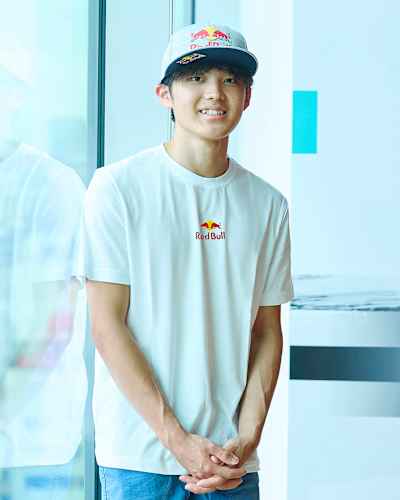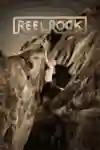
Climbing
Think first, train later: Sorato Anraku's surprise tips for new climbers
Your kit doesn't matter, your strength isn't key; put your phone down and get frustrated. These beginner tips from the world's number-one climber sound wild, but they'll get you up that wall faster.
If you want to tap up anyone for advice to help you overcome those teething troubles in your fledgling climbing career, it'd be one of the best climbers in the world today, right? Well, good news, because we caught up with Japanese prodigy Sorato Anraku and asked all the newbie questions, so you don't have to.
Read on to find out his responses; they might not be quite what you're expecting.
01
Who is Sorato Anraku?
Presumably, if you're already here, you know who Sorato Anraku is, but for those of you who don't, here's why he's someone you should listen to if you're hoping to improve your performance on the wall:
- Hailing from Yachiyo in Japan's Chiba Prefecture, he didn't even start climbing until high school.
- In 2023 he became the first climber to win both the Lead Overall World Cup and Boulder Overall World Cup in his debut senior season. He was 16 at the time.
- He won silver in the Combined event in Paris 2024 aged 17, but it took a bit of a shock result to stop him claiming gold.
- He's currently the number-one ranked male climber in the world.
- You can read more about him here.
02
What are the basics of climbing boulder and lead?
"Boulder is about how many of the four problems you can complete in four to five minutes. Dynamic movement is important," explains Anraku. "Lead is about how high you can climb on a wall of 15m or more. It's a one-shot competition, so it's important to attack each move calmly."
"If you're climbing in a flash like I did in that final [Paris 2024], you're going to fall when your arms are strained, so it's better to climb slowly and surely."
It is important not to put unnecessary effort into each climb, even as a beginner, Anraku notes: "If you want to learn how to climb well, you shouldn't climb by pulling with your hands without a thought. People with good muscle strength tend to pull with their arms and try to climb by force. On the other hand, if you don't have much muscle strength, many people use their legs well and are able to climb with their hands. It's important to be aware of pulling with your shoulders and using your legs, not your arms."
03
What are the essential kit items and what do you need to keep in mind?
So, when it comes time to start climbing, what do you need?
"Climbing shoes and a chalk bag," says Anraku. "I think it's fine to rent them at first. You only need to buy your own shoes if you are intermediate or above. In my case, I try to choose a size small enough that it hurts a little."
"I'm not very particular about my equipment and I don't know much about it," he continues. "The shoes I'm using at the moment just happened to be good ones when I chose them. To be honest, I don't really care what kind of tools I use. Rather, your choice of chalk changes a lot more than you might think. I recently realised that compatibility can be an issue. You might want to try different things."
04
What are the key mistakes that beginners make?
"One thing people tend to do when they get carried away is to keep climbing even after falling off," Anraku explains. "You should switch after each climb. Also, you might want to be more concerned about how you climb. Problems are set by people, so there's always an intention. Try not to ignore that intention."
This answer is typical of Anraku, who was a strong mathematics student in school. He solves problems by grasping the aim of the problem-solver and applies the same logical thinking to climbing.
"I can see that the creator wants you to do this a certain way, but it's also possible to use your arms, for example, to force your way through situations where they want you to use your legs. In competitions, it's OK if you can climb it, so we sometimes use a 'breaking' approach that tries to uncover a design error, but in practice, it's more beneficial to make sure that you can complete the climb in the correct way. It's better in terms of practice, and it's cooler."
05
What are some basic training exercises that can be easily done at home?
We ask if Anraku can recommend anything beginners can do outside the gym? Reinforcement training, for example, that we could do at home. Once again, his answer comes from outside the box:
"I don't think one needs it. I only started doing a bit of muscle training when I was in high school. Even now, I hardly do anything special," he says. "It's the beginners I'm talking about. You don't want power to solve your problems. Even if you're not very good at it, there are situations where you can get by with power, but if you keep doing that, you won't realise what you need to improve on."
"Climbing various challenges is more important than muscular strength. You have to learn how to swing, twist and fly, and learn those techniques and immerse them in your body. That's how I got here. Climbing requires the ability to think."
"Because you don't have the strength, you have to use your head and imagination. The quicker you get there, the better. The number of mistakes you make and the amount of time you spend thinking about them is the key to getting better."
06
Any secret techniques we can use to get better?
"I think the one thing I can definitely do is not to touch my phone while I'm practising. People often look at their phones during breaks, but I think it's better to stop. It reduces your concentration and makes you cold. "
"It's important to always have a sense of urgency, even in practice. I decide, for example, that I can only make three attempts. It changes the way I climb a lot. If I can really get down when I don't achieve it, then it's perfect. "
"The competition lasts less than five minutes, so you only get four or five attempts. That's why the information from the first attempt is so important. It would be a waste if you fall the same way the next time. So my frustration in Paris has now turned into just a point for improvement. I'm just thinking about what I should do for the next competition."













